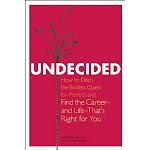The Chronicle of Higher Education tackles journalism education this week. Three point-and-clicks (there's more on the site):
Carlin Romano, a former journalist and philosophy professor at Penn, advocates a "
Philosophy of Journalism":
Why, at a time of breakneck technological and social revolution in news and newsrooms, do deans and presidents permit ossified philosophy departments to abdicate their responsibility to cover the world by not thinking about the media? How can it be that journalism and philosophy, the two humanistic intellectual activities that most boldly (and some think obnoxiously) vaunt their primary devotion to truth, are barely on speaking terms?
Be sure to read what he has to say about
why they are not on speaking terms.
Media scholar, frequent News Hour analyst, and Director of the Annenberg Public Policy Center at Penn
Kathleen Hall Jamieson advocates teaching university students to be "citizen journalists" in the best possible sense:
As partisan outlets proliferate, students raised on faux news will enter our classrooms cocooned in their own biases and conditioned to mistake ridicule for engaged contention. By creating an appetite for critical engagement, universities will challenge those insular tendencies. Drawing on their experiences in our classrooms, labs, and libraries, and mining the rich resources of the Web, our students will become citizen-journalists. In that role they will sort fact from fabulation and unmask abuses of power and the public trust.
Building on their talent for producing substance rather than sound bites, universities will host Web pages filled with accessible insight and argument about topics of national and international concern. Uncluttered by advertising and unbeholden to a commercial model, the nonprofit New York University Times and Wharton Journal will take their place alongside The New York Times and The Wall Street Journal. At Berkeley and Princeton, political scientists will publicly parse politics and policy. At Swarthmore and Stanford, English majors and art historians will critique exhibits, films, novels, and television programming. And the Annenberg Public Policy Center's FactCheck.org, which debunks distortions in national political advertising and debate, will be joined by university-based sites monitoring state and local politics.
After noting that he would prefer newspapers without a government to government without newspapers, Thomas Jefferson added, "But I should mean that every man should receive those papers and be capable of reading them." One of our goals as educators is increasing the disposition of our students to read widely and think and communicate critically. What better credentials for the citizen-journalist? And what better home for their journalistic work and for our own than in an institution dedicated both to free and open inquiry and to the generation and communication of knowledge?
Nicholas Lehman, Dean of the Columbia Graduate School of Journalism,
notes that while the news industry implodes, j-schools are thriving. his point is that "...journalism schools, because they are in universities, are an ideal place for journalism to find its way toward producing work that truly explains societies to their citizens":
The main problem in journalism today lies on the supply side, not the demand side. It is true that the unfettered, ungoverned Internet can offer up all sorts of misinformation to readers. But it is also true that, unlike traditional news media, the Internet provides a means for instant correction and counterargument. (Our leading font of durable journalistic misinformation is talk radio and television, not the Internet.) Online encyclopedias, auctioneers, and retailers have found pretty good ways of establishing trust across large communities of strangers; that is within journalism's reach, too. The Internet almost certainly has expanded the audience for genuine news more than it has expanded the audience for misleading news. The world's top news organizations have attracted enormous global readerships, far beyond what they have ever had before, and millions of secondary sites, from aggregators to one-person blogs, are heavy direct and indirect users of material produced by those organizations.
Because the barrier to entry is so low, the Internet is also a great medium for journalistic experimentation; we don't have to wait around for big, tradition-bound organizations to innovate. The real difficulty is that the Internet doesn't support the kind of journalism that covers production costs, because almost all Internet journalism is free to readers and bargain-priced, compared with print, for advertisers. Opinion journalism, of the kind invented by pamphleteers in the 1700s, thrives on the Internet. Original reporting does not. So even if every single person under 30 woke up every morning with a gnawing hunger for news, it's not at all clear that the hunger could be satisfied, especially if it's a hunger for local news.
Therefore journalism schools ought to explore, and are already exploring, the possibility of becoming significant producers of original news reporting to make up for the loss of the reporting that economically devastated news organizations can no longer afford. Journalism schools and departments are practical-minded, often to a fault; they are oriented toward sending their students out to report under faculty members' direction. The advent of the Web has made publication and distribution of the fruits of students' reporting easy and inexpensive. Anyone in the world who has a good Internet connection can log on to the Columbia School of Journalism's Web site and find at least two dozen journalistic sites operated by our students and faculty members. The efforts include local-news sites about Brooklyn, Queens, the Bronx, and upper Manhattan; subject-matter sites on charter schools, religion, and the economic crisis; and media-related sites for magazine, radio, broadcast, and digital journalism.
What journalism and the public most need right now is serious, continuing coverage of matters of public importance: city halls, school systems, statehouses. Journalism schools are not fully equipped to provide that now, but the logistical and financial difficulty of equipping them to do so would be far less than the difficulty of creating and sustaining new news organizations built from scratch. Like teaching hospitals, journalism schools can provide essential services to their communities while they are educating their students.









